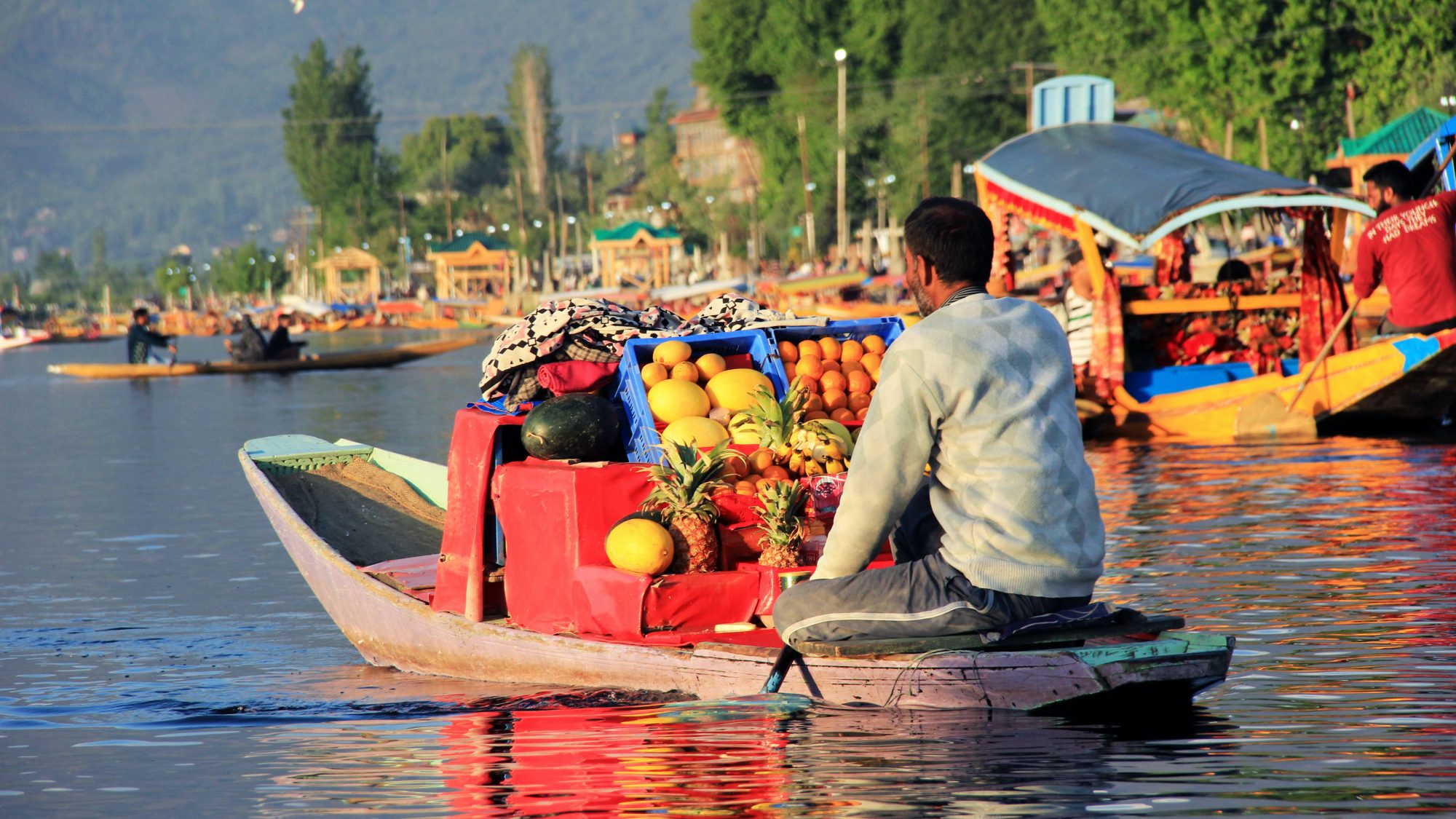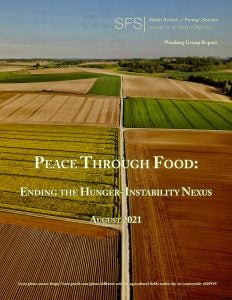Read the report
Summary Brief
In the twentieth century, humankind made phenomenal steps to increase food production. But today, complex and interrelated issues drive an increase in food insecurity globally, and propel conflict, migration, and human insecurity. Nearly a billion people, at a minimum, are malnourished or suffer the pains of hunger—while the world wastes a third of food produced. This pain, or the fear of it, drives political instability and conflict as people seek reliable access to food. Adverse climate events, poor resource management, disease outbreaks, breakdowns in distribution, and profit-driven research and development, among other factors, have led to structural imbalances and inequities in the food system, which limit consistent access to nutrition for an increasing number of people.
In spring 2021, the Institute for the Study of Diplomacy convened a series of working group meetings with participants representing academia, think tanks, government, international organizations, NGOs, and the private sector. The group mapped out the current state of global food systems, discussed the relationship between hunger and conflict, and sought ways to establish food security as a means to promote stability and end conflict.
Ultimately, an end to food insecurity requires three strands of policymaking: re-envision food security as a basic human right; re-think universal food security as a core component of stability and peace; and reform the global food system and distribution networks to address these shifts. Governments, NGOs, international organizations, and the private sector have already provided a foundation, but it is not yet sufficient to address the issue moving forward.
Key areas to focus on include:
- A shift in our frame of reference is necessary. A new framework and vocabulary for food needs to take a proactive approach that re-envisions food security through the lens of social protection, social safety nets, and as a global commons right. In other words, food security is a basic human right. At the same time, from a national security and diplomacy standpoint, analysts and policymakers need to understand food security as a first-order tool to build stability and prevent conflict and articulate policies with that in mind.
- The food system must become more resilient and coordination must improve. Food insecurity often arises due to single points of failure—often foreseeable—which demand humanitarian interventions. Hard-wired resilience at all points in the food system—from plant to pantry—would enable the system to withstand and adapt to periodic disruptions. A better, and greener, post-COVID recovery strategy provides the mechanism to do this. A resilience strategy should also focus on how policy interventions are integrated into local contexts, so the international community understands how investments might affect polarization, instability, and conflict.
- Ground-up approaches should be front and center. While international coordination must improve, prevailing views among global policymakers do not always translate well to local conditions; some may even drive conflict. Local leadership and local ownership of programs are essential, but interventions also require government funding and dialogue between those directly affected, national governments, and international organizations. In contexts with unreliable or uneven governance, a focus on the community level may be the best means we have to mitigate conflict driven by food scarcity.
Without systemic interventions and reforms, the United Nations’ goal to end global hunger by 2030 will continue to fall further out of reach in coming years. Humanitarian responses, while necessary, are too little, and too late. The international community must undertake a wholesale rethink of food security, leading to major reform of the food system as we know it. Beyond the issues noted above, this also includes filling key knowledge gaps, letting nutrition (not calories) drive food systems, aligning the public and private sector on research and development, using government procurement as policy tool, and, crucially, monitoring foreign land acquisitions and developing mechanisms to respond to food export protectionism. To achieve peace through food, all levels, from the local to the supranational, must work together.
Explore more on food security from ISD and our partners:
Diplomatic Immunity Podcast, “Peace Through Food with Bibi La Luz Gonzalez and Johanna Mendelson Forman,” October 13, 2021
Kelly McFarland, Alistair Somerville, and Emily Crane Linn, “Addressing the hunger crisis in Afghanistan: Is there a path to sustainable solutions?” The Diplomatic Pouch, January 27, 2022
Kelly McFarland and Alistair Somerville, “To Tackle Instability and Conflict, It’s Time to Elevate Hunger as a National Security Priority,” War on the Rocks, November 15, 2021
Emily Crane Linn, “All eyes on COP26: Can the conference produce a plan to cut emissions — and tackle food security, migration, geopolitics in the Arctic, and much more?” The Diplomatic Pouch, October 31, 2021
Emily Crane Linn and Alistair Somerville, “Food security is not just a humanitarian concern,” The Diplomatic Pouch, October 12, 2021
Shruti Samala, “Food as a Pathway to Peace: COVID, Climate, and the Hunger-Conflict Nexus,” New Security Beat, September 28, 2021
Kelly McFarland and Kit Evans,”Hunger is getting worse, not better, around the globe. The pandemic didn’t help,” The Washington Post, September 23, 2021
ISD and the Stimson Center, “Reimagining food systems: Seven things world leaders should consider to address global hunger,” The Diplomatic Pouch, September 22, 2021
Johanna Mendelson Forman, “Can food build peace?” The Diplomatic Pouch, September 13, 2021
Kelly McFarland, “Refocusing on climate change is a constant battle,” The Diplomatic Pouch, August 26, 2021
Ambassador Barbara Bodine, “How do we end the hunger-instability nexus?” The Diplomatic Pouch, August 24, 2021
Kelly McFarland, “Food is likely the next global crisis,” The Diplomatic Pouch, July 21, 2021
Watch a discussion of the report from September 14, 2021, organized in collaboration with the Stimson Center:

